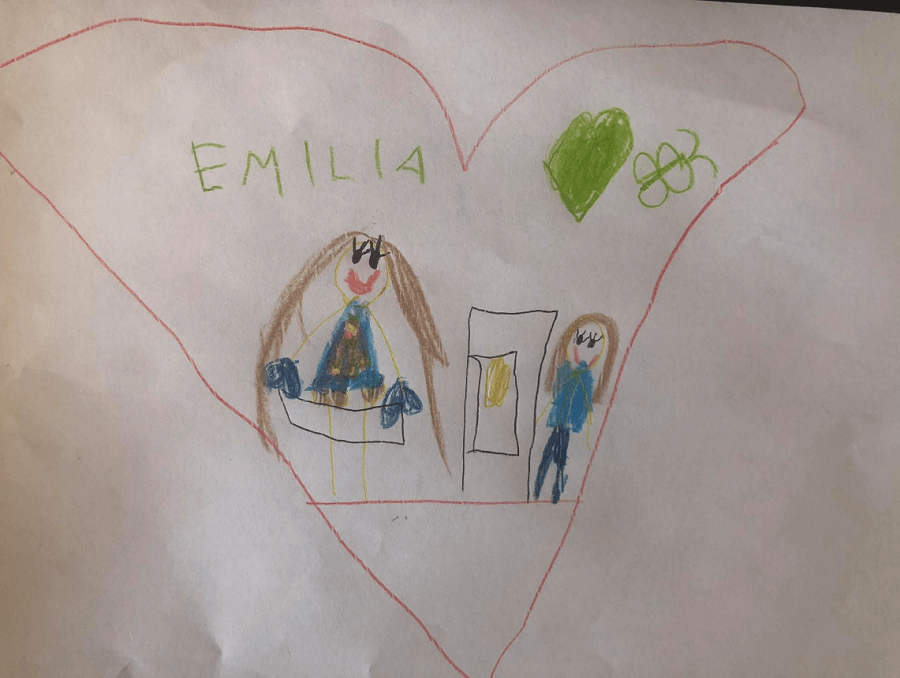Meet StreetballOG, A FIBA-Licensed International Basketball Tournament in Ogulin
June 22, 2020 - Meet the FIBA-licensed StreetballOG tournament, a streetball spectacle in Ogulin.
After one of the daily trainings, a team of boys from the neighborhood in the small mountain town of Ogulin decided to realize their dream. And that dream was to bring the best world players to Ogulin and organize an international streetball tournament. After months of organizing, gathering sponsors, and convening teams from all over Europe in 2018, the day came - StreetballOG FIBA international tournament was established in Ogulin.
And that day, it rained, a downpour. But that was not enough for some to give up their desire to return the small town and Croatian basketball to its former sporting prestige. In 2019, they received a FIBA license and hosted 12 teams, 4 of which were foreign.
Today, they continue their fight and are organizing the third edition, to which they invite all parties to join this street basketball spectacle.
But let's start from the beginning. Natalia Zielinska interviewed Miljan, the coach of KK Ogulin and one of the founders of the StreetballOG FIBA tournament.
Hello Miljan, first of all, why streetball?
Primarily because of the symbolism. The greatest talents of world basketball were created on concrete playgrounds in the middle of urban settlements. Sports halls are a luxury. It does not require a rich infrastructure for individuals to succeed in basketball, and a lot of perseverance and love for sports is enough. That is the case with Ogulin; we have no infrastructure, we are not the capital, we are quite isolated. But our concrete basketball court is always full of young enthusiasts, and we believe they will end up in the NBA one day.
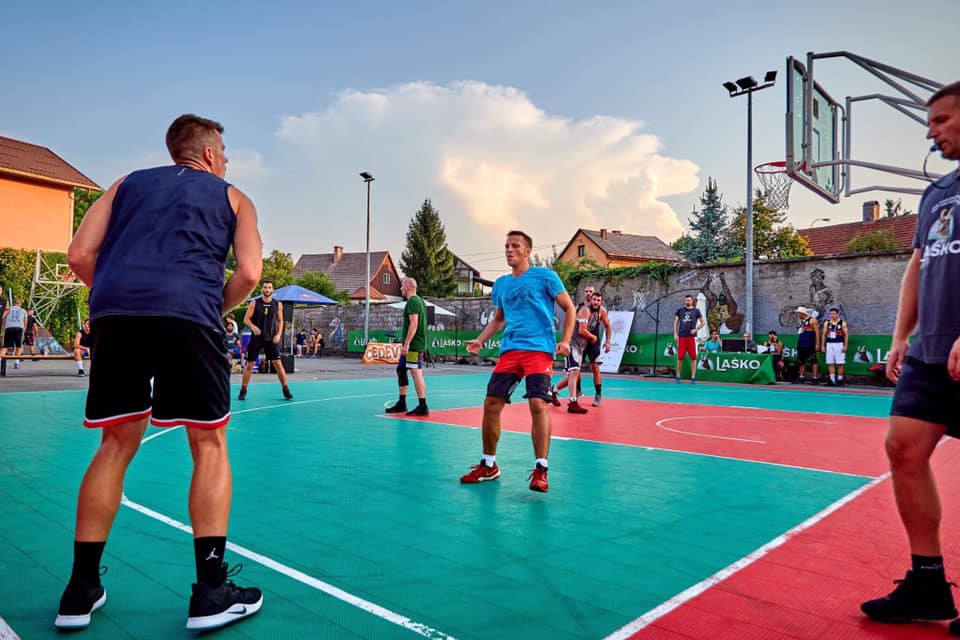
In addition, this type of basketball is becoming more popular, simpler and more attractive for recreational players. It is played in two teams of 3 players. But it is demanding enough to become an Olympic discipline by 2020. So, we have a symbolic aspect but also an interesting and demanding sport discipline.
Where did you get the idea to organize the tournament?
The very idea of the international StreetballOG FIBA tournament was born after many years of organizing a local tournament for all generations of basketball players in Ogulin and the surrounding area. As the tournament has always attracted a lot of attention from citizens, and in parallel streetball has become increasingly popular in the world, somehow everything went in that direction to make an international tournament with a FIBA license.
It started over a beer in the summer talking about being able to make a tournament in Ogulin that would be on the world map and what seemed like a completely impossible idea was a real challenge, so we decided to make it possible. So, in 2018, we connected everything and started the organization, started the tournament licensing process, used all our basketball acquaintances domestic and foreign, and simply started the story. After the first year, due to the rain, we held a tournament in a hall with 12 teams, and the following year, everything was as we imagined. The second edition of the tournament, we had 14 teams in the open, made various contacts with teams from Slovenia, the Czech Republic, Serbia, Bosnia, Azerbaijan, USA and shared experiences.
Everyone praised the organization for giving this strength and our desires are only growing - we simply want Ogulin to be an unavoidable stop when someone in the basketball circles of our region mentions streetball.
What are the reactions? Are you satisfied with the cooperation and response of the viewers?
Whenever we travel to other tournaments, we have the feeling that there is a greater response and interest in basketball, whenever we go to a tournament, because of promotion, contact and experience, we are surprised by the interest of the audience, sponsors, etc. Unfortunately, this is not the case.
Precisely because of this neglect of small places, but also of young people, today's basketball is where it is.
If we think we can achieve something, we have to start working at the lowest, local level, create habits in children, encourage them to believe in themselves, to continue training to one day achieve something. That's why we started organizing the tournament. We wanted to bring good teams, domestic and foreign, so that everyone, especially young people, has the opportunity to see the best of Croatian streetball.
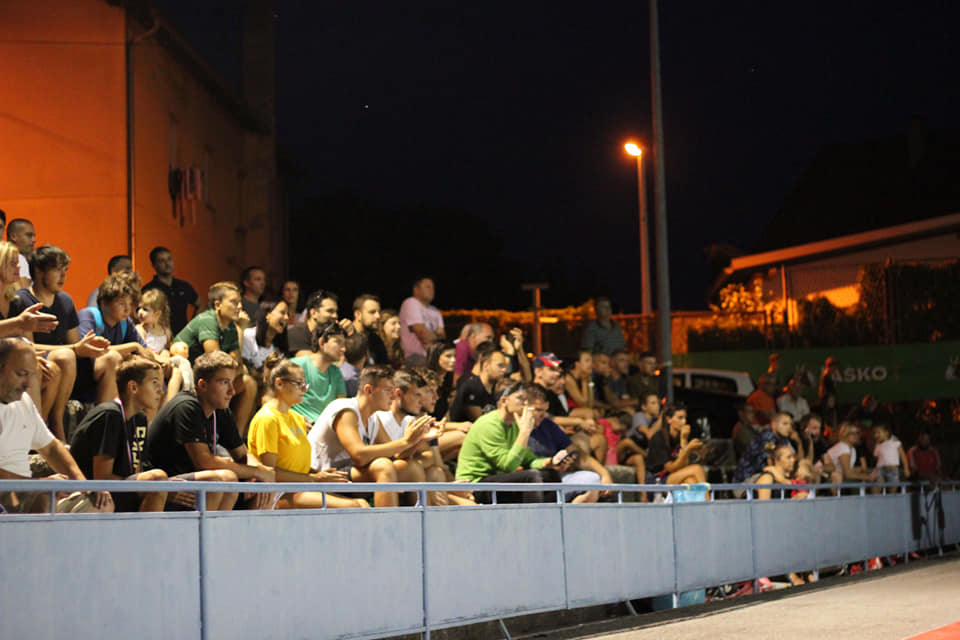
But besides that, it is important that domestic teams compete in the tournament, so that we can see young spectators in relation to foreign teams and that we also have our own qualities, and that it is not all that unattainable. In this way, we create self-confidence in young people, strengthen the love for local sports, but also show how sport can be both fun and an opportunity for further development.
And did you succeed in that idea?
Last year, we partially succeeded, we had the best Croatian team, the boys from Ogulin played for third place with the team from Azerbaijan, where there were two Americans. Unfortunately, they were defeated in overtime, but what the audience, all those gathered could experience and feel that some basketball players from Ogulin have the knowledge, strength and capabilities as everyone else. So we started breaking down prejudices and underestimating ourselves because we are from a smaller background.
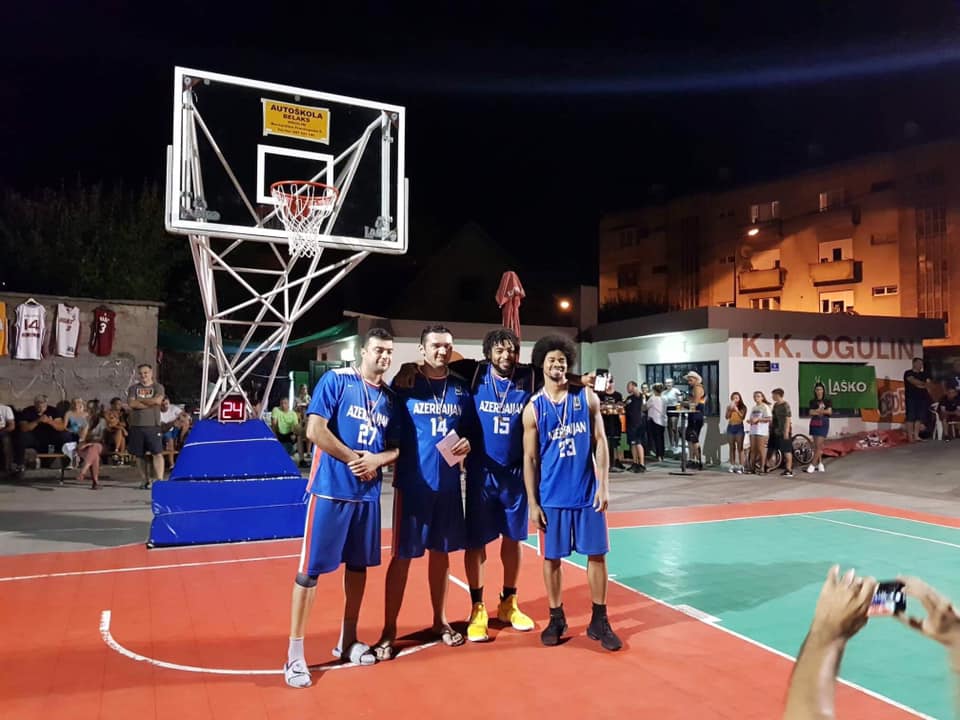
Today, it is impossible to do anything if you don't believe in yourself and work on it. That is something that is the essence of this tournament and that its message to young people and generations to come is irrelevant, it is sports and basketball. All that matters is the idea, the determination to work and success must come, and it is always the result and equivalent of the effort and work invested.
So what is the plan for this year?
This year we didn't even think that the tournament wouldn't take place because of COVID, and we just kept thinking about what and how. Sponsorships are a bigger problem in all of this than inviting and informing teams. But we do not give up, the support of local entrepreneurs and crafts exists, they need a lot to close the financial picture, and this is the biggest challenge. This year we want to get our own background, organize a concert so that foreign players can feel the tourist benefits of Ogulin, introduce everyone who comes to the natural beauty of Ogulin and its surroundings, our food, and simply with basketball to use the time for additional facilities. We are trying to create another platform through streetball to promote our region, the tourist offer of Ogulin, and the opportunities that are opening up.
To read more about sport in Croatia, follow TCN's dedicated page.
Foreigners Self-Isolating in Croatia: Do You Feel Safer? Natalia from Poland in Ogulin
April 12, 2020 - Do foreigners in Croatia feel more or less safe sitting out COVID-19 here than in their home country, and what are their experiences? A new series on Total Croatia News, with Natalia Zielinska from Poland in Ogulin as the 36th contributor.
Oxford University recently published some research on government responses to coronavirus which showed that Croatia currently has the strictest measures in the world. While inconvenient, this is a good thing in terms of reducing the spread of the virus, and I am certainly not alone in my admiration of the official Croatian handling of this crisis in recent weeks, both in terms of action and communication.
But what do other expats here think? And how does it compare with the response in their home country? Would they rather sit this one out here or there? A new series on TCN, we will be featuring expats from all over the world to see what their views are on life in corona Croatia rather than back home. So far we have heard from expats in Croatia from Romania, USA, Ireland, UK, Mexico, Argentina, Spain, Singapore, Holland, Canada, India, Hong Kong, Venezuela, Latvia, China, Honduras, Hungary, Moldova, South Korea, Japan, the Philippines and Germany. Next up, Natalia Zielinska from Poland in Ogullin.
If you would like to contribute to this series, full details are below this interview.
Hello, I’m Natalia. I have lived in Croatia permanently since 2013, I run a company here that deals with consulting, preparing and implementing EU projects. I run several projects aimed at developing entrepreneurship and entrepreneurial skills in Croatia. Unlike most people who are in this business, I chose Ogulin, a small mountainous town right between Zagreb and Rijeka, for my life destination.
Firstly, how are you? Are you alone/with someone? Tell us a little about your situation and sanity levels.
I'm fine now. I'm not alone, we have a family and our little children here, so I definitely don't miss being around people. Quite the opposite. At the beginning, I was quite angry, disappointed because things got out of control, and I followed all the news in Poland and Croatia with tension. The worst thing was the ignorance, the virus started to spread, we didn't know if it was really a threat or some worse form of the common flu. I’ve already come to terms with the situation, but I’m still abnormally concerned about my family in Poland.
What struck me most was the closure of the borders, Poland was the first to introduce these measures.
Then I realised that if something bad happens to my mum who is alone, then realistically I can't even get to her, this feeling of powerlessness is terrible. But now that the situation is stabilising and we know, roughly, what’s going on around us.
So, in my private life, I’m now stable, I’m even enjoying this new rhythm where I’m constantly surrounded by children.
I went through the same stages in business - disappointment, anger and slowly getting used to the situation. Now, I’m continuing doing business peacefully, but I’m also increasingly trying to help and support other entrepreneurs who are in a bad situation.
In addition, I’m adapting to this new situation, developing an online business, focusing on our long-term partners, our clients. We’re building a relationship, we’re no longer interested in short-term earnings. Currently, we’re spending more time and resources on volunteer work, counselling and support than we are on commercial activities, which may not be good business sense, but these times have shown that we are dependent on each other.
What do you think about the economic measures the government is taking, are they helping your business?
The first measures were not sufficient, but all thanks to the Voice of the Entrepreneur (movement) and other branch organisations, things were organised in time to find better conditions.
For now, these existing measures are more than good, I personally just care about the background, that is, how the state will be able to finance these measures, because we’re aware of the inefficiency of the public sector.
Each day, we have 20-30 inquiries regarding government measures, grants and loans.
Each day we submit 10 applications for working capital loans.
I can say that the crisis that has emerged will further purify this sector, in the way that there are entrepreneurs who are struggling for their businesses and employees, and we have some who are immediately retiring to protect their interests. I think that in a few months, we will return to a full and healthy environment, a digitised public sector, hopefully deprived of parasites, but on top of that, better quality, more resourceful and loyal entrepreneurs will somehow be winners in the whole situation.
A decision has been made to limit public procurement, which is explicitly detrimental to the economy, but I hope this decision will not apply to EU projects, which are now the main wheel in re-starting the economy.
When did you realise that corona was going to be a big issue?
When they closed the borders, when for the first time someone restricted me, a child of Solidarity, the EU and the free market, the elemental freedom of movement. It's kind of a slight shock to us, ‘almost’ millennials.
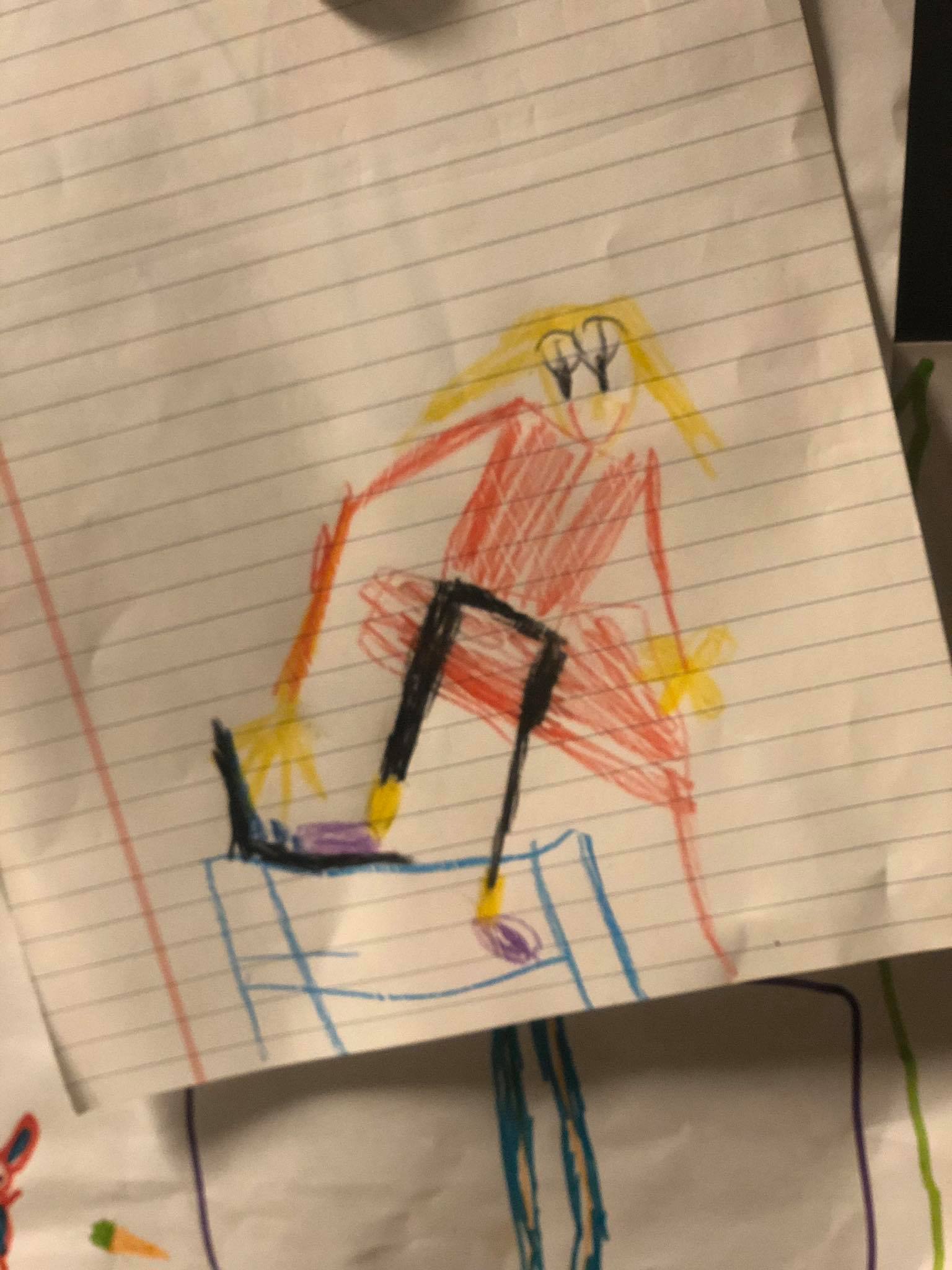
What is your impression of the way Croatia is dealing with the crisis? How safe do you feel?
The Croatian Government has put adequate measures in place in time. Communication is great, the organisation is too, the other day, the headquarters came to our apartment because we have Zagreb license plates [to check we were meant to be where we are]. Everyone really is doing their job. What concerns me are irresponsible citizens, on the one hand, they complain about the restriction of liberties, and on the other, they don’t know how to respect the elementary rules of conduct. That way, we keep going around in circles.
Now compare that to your home country and how they are handling it. What is Croatia doing better/worse?
Croatia definitely has better measures for entrepreneurs, for example, while for example, the Poles have better measures for the cultural sector, those who are self-employed and micro-entrepreneurs.
The Poles also introduced measures to further accelerate the implementation of investments such as exemptions from public procurement obligations for certain funds. A page has been created with all the measures and direct links for application, in Croatia, we have some announcements and additions to them every day. There is no single channel of communication.
In Poland, unfortunately, the ruling forces forcing the presidential elections in May are trying to take advantage of the situation. In addition, a number of legal measures are introduced, using a situation when everyone's attention is focused on the fight against COVID-19.
In Croatia, politicians behave correctly, I didn’t see anyone trying to score political points at the expense of the situation, finally, experts and those in the know joined the debate and subsequently organised the private sector.
In Poland, these initiatives are missing.
What's the one thing you wish you had taken with you into self-isolation?
My phone. To be able to hear from everyone and follow everything that happens.
What is one thing you have learned about yourself, and one thing you have learned about others during this crisis?
I’ve realised how much I’m missing out on the development of my children, since I’ve been working from home, watching them all the time, and only now am I understanding some of their behaviours, their rules. We have a much better relationship.
I always had it on my conscience that we had a bad business model because people, and their problems, were always my focus. Then many people assured me that the purpose of a business was to make a profit. When that profit disappears in one day, or one month, the people remain - business and life partners you can rely on. I think the crisis has convinced me only of the correctness of my views.
And secondly, I’ve not learned anything new, as there are always individuals who are struggling, they find solutions and they are great and inspirational people, and there is always a crowd that just criticises and senselessly discusses things.
These situations better highlight both categories of people, so it's a great opportunity to verify your friends and those on your list of business partners.
Thanks, Natalia. Stay safe and see you on the other side.
TCN is starting a new feature series on foreign experiences of sitting out COVID-19 here in Croatia compared to their home country. If you would like to contribute, the questions are below. Please also include a para about yourself and where you are from, and a link to your website if you would like. Please also send 3-4 photos minimum to This email address is being protected from spambots. You need JavaScript enabled to view it. Subject Corona Foreigner
If you would be interested to record a video version for our partners www.rplus.video please let us know in the email. Thanks and stay safe.
Foreigners Self-Isolating in Croatia: Do You Feel Safer Than in Your Home Country?
Firstly, how are you? Are you alone/with someone? Tell us a little about your situation and sanity levels.
What do you think about the economic measures the government is taking, are they helping your business? (PLEASE IGNORE IF THIS DOES NOT AFFECT YOU)
When did you realise that corona was going to be a big issue?
What is your impression of the way Croatia is dealing with the crisis? How safe do you feel?
Now compare that to your home country and how they are handling it. What is Croatia doing better/worse?
What about official communications from the authorities, compared to your home country?
What's the one thing you wish you had taken with you into self-isolation.
One thing you have learned about yourself, and one thing you have learned about others during this crisis.
TCN has recently become a partner in Robert Tomic Zuber's new R+ video channel, initially telling stories about corona experiences. You can see the first TCN contribution from this morning, my video from Jelsa talking about the realities of running a news portal in the corona era below. If you would like to also submit a video interview, please find Robert's guidelines below
VIDEO RECORDING GUIDE
The video footage should be recorded so that the cell phone is turned horizontally (landscape mode).
There are several rules for television and video news:- length is not a virtue- a picture speaks more than a thousand words
In short, this would mean that your story should not last more than 90 seconds and that everything you say in the report should be shown by video (for example, if you talk about empty streets, we should see those empty streets, etc.).
How to do it with your cell phone? First, use a selfie camera to record yourself telling your story for about a minute and a half. Ideally, it would be taken in the exterior, except in situations where you are reporting on things in the interior (quarantine, hospital, self-isolation, etc.). Also, when shooting, move freely, make sure everything is not static.
After you have recorded your report, you should capture footage that will tell your story with a picture, such as an earlier example with empty streets.
One of the basic rules of TV journalism is that the story is told in the same way as a journalist with his text. Therefore, we ask you for additional effort. Because we work in a very specific situation, sometimes you may not be able to capture footage for each sentence of the report. In this case, record the details on the streets: people walking, the main features of the city where you live, inscriptions on the windows related to the virus, etc.
The same rules apply if you are shooting a story from your apartment, self-isolation, quarantine. We also need you to capture footage that describes your story.
When shooting frames to cover your reports, it is important that you change the angle of the shot (in other words, shoot that empty street from several angles). Also, when shooting a detail, count at least five seconds before removing the camera to another detail.
The material should be about 5 minutes long (90 seconds of your report + frames to cover your story).
After recording everything, send us to Zagreb, preferably via WeTransfer to This email address is being protected from spambots. You need JavaScript enabled to view it.
Wash your hands.
Advent in Ogulin: Fair Prices, Magical Atmosphere and Snow
You've no doubt heard about Advent in Zagreb, the award winning event the Croatian capital puts on every year which earned it an enviable status as the top European Christmas destination for three years running. You've probably also heard about Advent in Dubrovnik and Advent in Split, but what about venturing into Karlovac County and experiencing the much less talked about Advent in Ogulin?
As Novac/Gordana Grgas writes on the 15th of December, 2019, Ogulin's residents have organised a very special Advent in Ogulin manifestation this year, on the honourable topic of ecology. They began the initial preparations back in September, when the Straw Crafts Workshop first began. Twenty participants, for two months under the careful guidance of expert associate Marija Trdić Ćuk, made Christmas cribs of natural materials in their natural size.
Thanks to workshops for making bird houses and Christmas decorations made from bird food, conducted by young people from the Ogulin Ecological Society, the town got the first EDO EKO village for birds while the decorations were set up in the city park as bird food.
Eventually, the whole city seemed to be involved in writing the beautiful Advent in Ogulin story. Workers from the local timber industry, Bjelina, made wooden ornaments for the ice skating rink, and their decorations are on Christmas trees in the city park.
In fact, the vast majority of Advent in Ogulin's content and facilities have been created by Ogulin residents and local companies, and the food and drink on offer comes with a price nobody can really complain about, with certain rakijas which do just the job to warm you up on a cold wintery day coming with price tags of just 11 and 12 kuna.
At the location of Petar Stipetić Square is the Advent calendar installation, consisting of 24 pine trees in jars. Each carries one wish before Christmas: hope, health, happiness, family, home, goodness, faith, peace, honesty, knowledge, smiles, freedom, equality, joy, well-being, equality, understanding, humanity, humility, love, truth and light.
On weekends, the Advent Fair is held in the city park, where school cooperatives, associations and local artisans sell their handicrafts and are joined by their parents.
"Together with their children, they conducted workshops for the Children's Social Entrepreneurship to create Christmas decorations that they sold to raise donations for the Jagor charity, and to show the little ones the importance of being an entrepreneur whose primary goal is social influence, and not profit generation for the owners or shareholders,'' says the director of POU.
They have rightfully called it a fairy-tale advent, believing that it was worthy of the spirit of the tradition of this overlooked yet stunningly beautiful region of Croatia in which the famous Ivana Brlić-Mažuranić was born. While Advent in Zagreb continues to draw most of the crowds from at home and abroad, another, equally festive story is going on with Advent in Ogulin, and there's even some snow.
Make sure to follow our dedicated travel page for much more.
Croatian Town of Ogulin Lowers Surtax, Opens New Work Positions
If we had a euro for every negative story published about the state of the Croatian economy, the demographic crisis, the ''trickling'' away of the country's qualified workforce and a lack of political will for change, we'd all be able to retire.
It isn't that those things aren't true. Unfortunately, they all are. That, however, doesn't mean that there aren't very many positive examples being set by not only individuals, employers, associations and entrepreneurs, but by entire towns, cities and municipalities across the country. There is an increasing level of positive, inspiring pieces of news that restore your faith in this overly complicated little country every day, even just a bit. Ogulin is one such story.
As Poslovni Dnevnik writes on the 4th of August, 2019, over recent years, the overlooked little continental Croatian town of Ogulin has been managing to make some breathing room for its inhabitants, and this will be felt by residents as soon as this month. as their surtax has now successfully been reduced twice - from ten down to just five percent.
The cut was first decided and imposed four years ago, as RTL news reports have stated. The ruling party and opposition, as in most other places, were too busy hitting each other with their proverbial handbags and trying to score political points, and owing to that, this little Croatian town experienced a several-month-long power crisis.
"By reducing the surtax, we're releasing about one million kuna to Ogulin's citizens and craftsmen. We went with this measure in order to make citizens really feel this increase. Some criticise you for implementing a populist measure, but I don't believe that populism makes life any easier for citizens," says Dalibor Domitrović (SDP), the current mayor of Ogulin.
This Croatian town hasn't just stopped at lowering surtax. Ogulin also now boasts 250 brand new jobs, as the parquet factory in Ogulin currently employs 330 workers.
"Well, it means a lot to me because for seventeen years I was the one who needed to travel for 45 minutes to get to work, and now I'm five minutes from home," said a satisfied Helena Simić, an employee at the aforementioned parquet factory in Ogulin.
Make sure to follow our dedicated business and lifestyle pages for much more.
Croatia's Foreign Entrepreneurs: Natalia from Poland, EU Funds for Ogulin
April 14, 2019 - Continuing our look at the foreign entrepreneurs trying to succeed in Croatia as so many are emigrating, meet Natalia from Poland, an EU funds specialist making a difference in Ogulin.
The absolute best thing about living in Croatia and running TCN is the knowledge that every day is different, and one can never predict anything.
There are so many interesting people here, from all over the world, and the more I travel around Croatia, the more amazing people I meet.
Earlier this month, for example, I spoke at the first Business Club International in Zagreb, together with the star of the night, Natalia Zielinska, a Polish lady now living in Ogulin and doing fabulous things with EU funds. So, after several months, I am delighted that Natalia agreed to an interview, thereby reviving our popular feature on foreign entrepreneurs in Croatia, at a time when many young Croats are headed in the opposite direction.

1. First and foremost, why Croatia?
Why not?! I mean, Croatia with all its absurdities is still a beautiful country to live in, especially when you are a young parent. But I did not plan that. I started studying Slavic studies and European Studies in parallel, so I worked on EU projects and studied Croatian. First the academic path and then the business path led me to Croatia.
In the meantime, I fell in love with my present husband. I am still in love so I can get through everyday obstacles in Croatia somewhat easier.
2. INTRO YOUR BUSINESS, what is it you do?
I am working on the preparation and implementation of EU projects. I advise clients, mostly small businesses, but also the public sector, which of the possible programmes they can use.
After that, I draft the bidding documentation and, after the approval of the grants, I am responsible for the implementation of investment projects. In theory, I am involved in consulting services. In practice, I deal with management, strategic planning, human resources. All more demanding projects contain at least part of all of these elements.
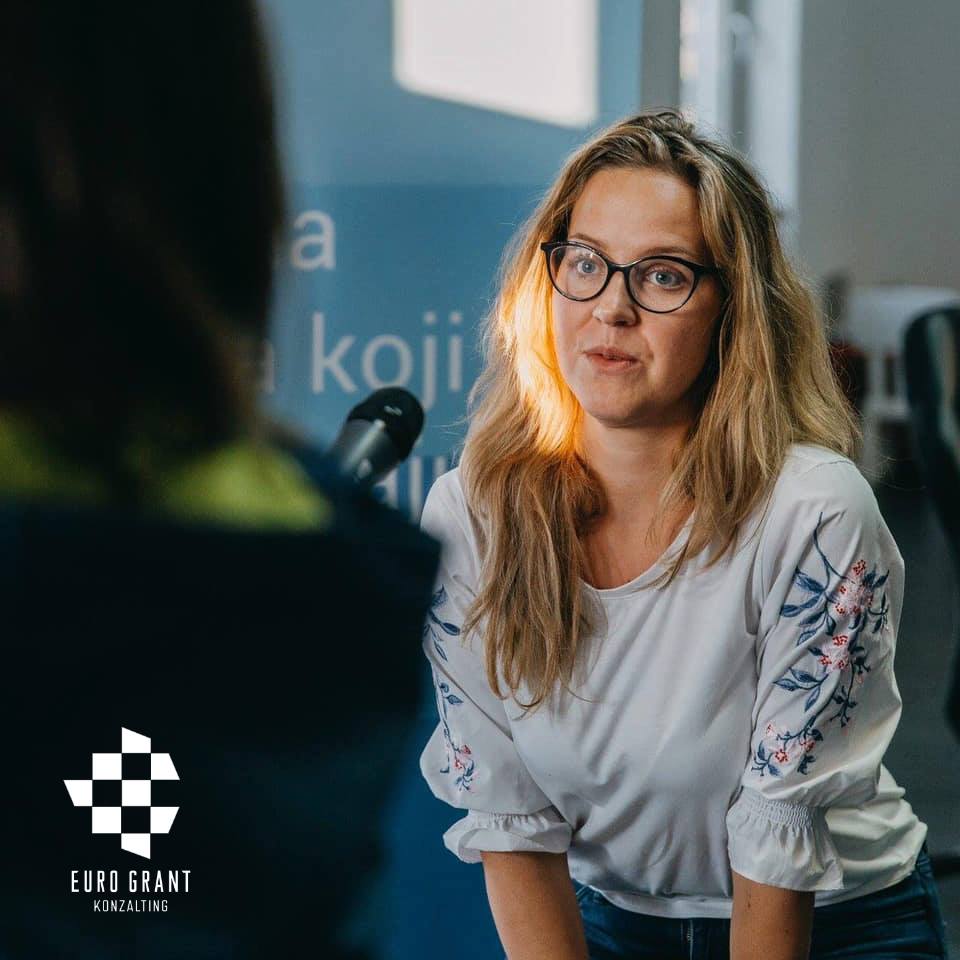
3. Tell us about some of the differences in your expectations of running a business in Croatia and the reality.
Before I came to work in Croatia, I did the same job for four years in Poland. I have a university degree in EU projects. The difference is best seen in the fact that my first business partners, a company with large projects in Poland, decided against further investment in Croatia after half a year.
The calls were not published at the planned time when they were finally launched, and they were complicated and unclear, you could not get any information if you did not have connections and well-placed acquaintances. What was worse, the trust of people in EU funds and the public sector was justifiably very low. When I came talking about EU funds, I felt like a Jehovah's Witness. People thought I was going to cheat them. That was understandable, in view of their experience. But I did not give up despite differences and obstacles.
Immediately at the very beginning, I had a baptism of fire, and I knew it would be an arduous journey, but by nature, I am clinically persistent – I simply accepted the fact that I would have to learn everything from scratch. I was persistent, gained the trust of people, succeeded with one, two, three projects... And so on.
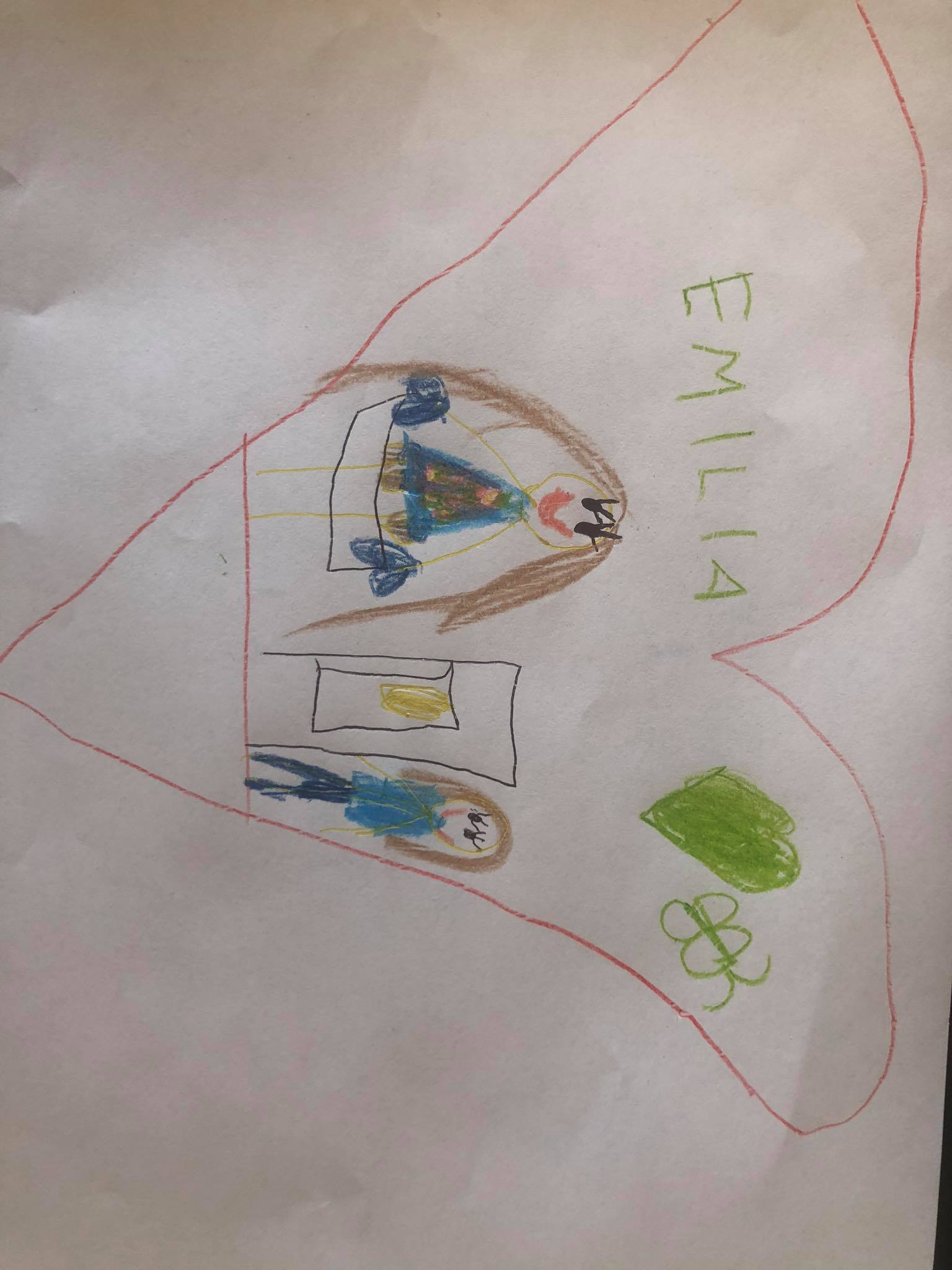
4. What (if any) bureaucratical issues have you encountered and how did you overcome them (i.e. any advice to the would-be entrepreneur?)
After five years, whenever I need to make a change in a company, add business activities or change my address, I have to go to a public notary where I personally sign a few sheets of paper. This is an absurdity in the digital world. I pay 20 different fees a month. To receive a grant from an institution, I have to ask that same institution to confirm that we have no debts towards them. What can I say? Two different laws define the same thing in two completely different ways. Each ministry has its own opinion, even every employee in each department has his or her personal opinion.
When writing a project, you have to follow the regulations, but the question is which regulations and whom you can ask. Of course, if you choose wrongly, you are hit with a fine or a rejection. The rules change daily. The worst thing is that there is no responsibility in the public sector; the whole weight falls on the shoulders of entrepreneurs. I have still not overcome this situation, I have just created my little micro-cosmos, based on the Ogulin model, where I know more or less everyone, and it is easier to get information.
At one point I wondered, if in Ogulin you can look a person in the eye and solve everything with a conversation, why this does not work at the national level? In the end, we are all people, so I started working with everybody as if we were neighbours, openly, kindly and sincerely.
This proved to be effective. In most cases. There are still bad examples. Therefore, I am always prepared for obstacles, but I am clinically persistent. I sometimes wait for people at their doors or call them 20 times a day. The bigger the challenge, the more persistent I become. It is challenging, but success is sweeter that way.
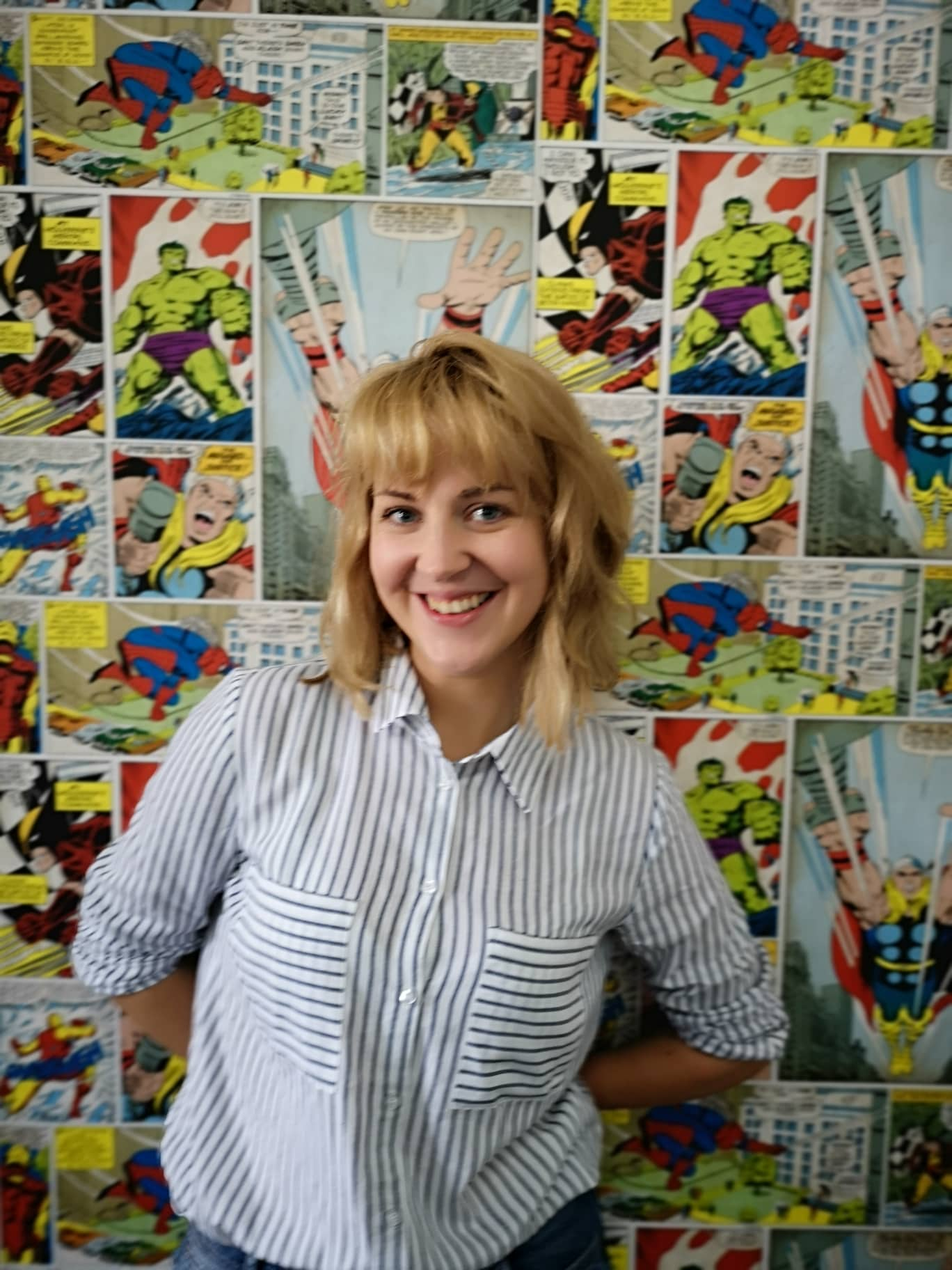
5. How is your product or business perceived in the Croatian market?
Now, after four years since we started realising real investments from EU funds, it is a little easier to gain customer trust. In the beginning, it was all too abstract for everyone. Besides, consultancy services are intellectual services, while Croatia values things such as savviness, knowing the right people and political background more than expertise. That is a fact. At first, I was very frustrated, but then I accepted the rules of the game. I created new value. I still respect the expertise and do not let yield too much, but I talk and build informal networks.
Of course, the inefficient EU funds system has a significant effect on us the consultants who are the main culprits for a possible failure. The client is paying us to bring him or her to the goal of getting the EU grant. They do not care about the path we have to endure and how often a large part of it does not depend on us, but rather on an employee of a particular agency or ministry. This is a great responsibility. As I said, now that I already have my network, my experience, a specific portfolio, it is easier to operate in the market.
Clients are willing to pay more because they know they get outstanding service, now that I have turned my approach into a brand. You know how it goes: they initially laughed, then they threatened, and now they call me because I am well-known for being direct, decent, and productive. While some projects based on knowing the right people are failing, my projects are expanding.
6. What were the opinions of your friends and community, were they supportive of your idea, or…?
My husband is also crazy about his own ideas, so he fully supports me and stands by me. I am the one who always fears, questions. He keeps asking me, so what if you do not succeed, what can happen that would be so terrible? Then, when faced with the bleakest scenario, I realise we have nothing to lose. We have two kids, and that is what is really important and fixed. Everything else is just passing projects, work.
Everything I do is for the family, to be a full and happy person, to show my children that they should be persistent and believe in themselves. Other people... so-so. I have people who not only support me but embark on crazy ideas, like coworking in Ogulin or an entrepreneurial incubator - the Entrepreneurship Academy. Some come to me with their crazy ideas that we turn into reality. If the Croatian society were so conservative and passive as it is believed to be, I would not be here because, in the end, I cannot write all the projects, I am only structuring them, but the ideas come from people. And people here are really wonderful when they are given an opportunity to express themselves. I do not care about jealous and envious people. If they want to hinder me, I become even stronger. But I do not care about them; I have too much work with positive stories.
7. What are some of the greatest challenges you have faced in business in Croatia?
Each project is a challenge. But the most challenging project was to start doing business here, without my own capital and knowledge, in Ogulin.
8. If you knew then, what you know now, would you have come?
Definitely. But, if I knew everything I know now, that would have saved me a lot of nerves and getting upset about things I could not influence. The system is a system, and you cannot bring it down, you can only show by way of example that it can be done differently and that others can follow you and give up on the system which will collapse eventually on its own.
9. What are 3 things you love about Croatia?
1. Food - I suppose I needed to come here to figure out that green salad can be eaten just with olive oil and lemon, the finest side dish after Brussels sprouts.
2. Biodiversity - everything is so close, the sea, mountains, forests...
3. Relaxed way of living – I am choleric so this “let it be” approach by the Croats suits me well. My hyperactivity and the nonchalance produce an exciting combination.
But I have to note that these three things are the reasons that can easily make you slow down and get lazy in Croatia. That is the rabbit hole in the wonderland. But you realise that in the end, the queen cuts off the heads for fun. Yes, it is lovely, but you cannot relax too much.
10. What are 3 things you would like to see improved in the business climate in Croatia?
We should cut the public sector by 75%, shift most services to the more efficient private sector. We should merely unleash the market, and then everything will come to its own. The invisible hand will sweep the mess. So, in short, we should improve the business climate and just let people do their jobs. We do not need any incentives, laws, just let people do it.
11. How is it working with Croatians in terms of a business mentality?
Well as I have said, in the end, I have personally created a good combination with the Croatian mindset that works very well. Croatians avoid effort and change, and I am a hyper-activist who continually moves the boundaries. I teach them that you can always do something differently, while they teach me that it sometimes makes no sense.
Sometimes you have to reconcile with how things work and do not force changes but work systematically on them.
12. Advice for foreign entrepreneurs thinking of coming to Croatia?
Find reliable partners from Croatia who have experience in this and know how to find their way around. Otherwise, you will spend time and money hitting your head in the wall, while there are a lot of people who have built their own exit. Use them, their experience and knowledge. Otherwise, there is a significant risk you will be duped. Crude but true.
You can learn more about Natalia's Euro Grant Consulting on the official website.
To learn more about the foreign entrepreneurs trying to make it in The Beautiful Croatia, check out the heroes we have covered already.
Are you a foreign entrepreneur trying to make it work in Croatia and would like to promote your story? Contact us on This email address is being protected from spambots. You need JavaScript enabled to view it.
Ogulin: Budget Doubled, Investments Arrive, 250 Work Positions Open
As Novac/Gradonacelnik.hr writes on the 29th of March, 2019, Ogulin has made a great many steps forward economically.
''Across all areas, the numbers are growing and visible progress has been made. We believe that our honest and committed work and the desire to contribute to the development of Ogulin in all fields has been recognised and that it's the only reason for our victory, and at the same time, the foundation on which we'll build our further activities and plans,'' said Mayor Domitrović for Gradonačelnik.hr who won a majority in the City Council three weeks ago.
Early elections held in Ogulin three weeks ago, where SDP won by a landslide, winning 9 out of 17 seats in the City Council, saw a somewhat impossible situation which had taken hold of the local area finally overcome. The citizens of Ogulin came out and gave their support, SDP's list won a majority and with its nine mandates at the constituent session of the City Council scheduled for April the 5th, it can independently form a government, declare what the budget will be, and proceed with the implementation of all of Ogulin's planned projects.
Only five SDP councilors entered during the recent local elections in the City Council, so the majority of nine councilors formed with three councilors from the now independent Željko Stipetić's list (former HSP AS) and one councilor of the DSS came to be. However, after the coalition collapsed at the end of last year, Mayor Domitrović remained without the support of the City Council, which is why the budget wasn't adopted for this year, so the government, according to what is set out by law, dissolved the City Council and announced early elections.
''We believe that our victory is the result of our work in the past year and a half, which our citizens have recognised. We took the reigns with a simple way of being that involves work, order and discipline, and the results we achieved were that people, having first given me their trust me a mayor in 2017, have now given that same trust to the party who had me run as a candidate, because in a year and half, we've shown that we can do much more and do it in a much better way than our predecessors. In all areas, the numbers are growing and visible progress has been made. We believe that our honest and committed work and our desire to contribute to the development of Ogulin in all fields has been recognised and that this is the only reason for our victory, and at the same time the foundation for our further activities and plans,'' said Mayor Dalibor Domitrović.
The figures speak volumes about what was done, how it was done, and the level of effort involved. Over the last year and a half in Ogulin, an impressive 250 new employment positions were opened, thanks to a large investment cycle that kick-started the economy.
Domitrović and his team succeeded in solving several property related legal problems that had been blocking investors and their cash, and because of which the new Ogulin entrepreneurial zone sadly became obsolete. The area is now fully completed and ready, and now Ogulin has requested an additional 47 hectares of land from the state, because the interest of potential investors certainly hasn't gone away.
"In the old and in the new entrepreneurial zone, investment projects worth 1.25 billion kuna exist, which, in addition to other projects, in the coming years, could turn Ogulin into a large construction site where more companies from the Ogulin area will have the opportunity to earn money,'' Deputy Mayor Danijel Vukelj said.
Since the beginning of their mandate, they have managed to launch two large projects that had been deadlocked for decades - the Ogulin flood defense system, that is, the construction of Ogulin's retention system, a project worth 180 million kuna and which is led by Hrvatske vode (Croatian water), and the construction of the Ogulin observatory project worth 250 million kuna, run by Hrvatske ceste (Croatian roads), which is dealing with major traffic problems that hinder the development of entrepreneurial zones and thus the local economy of Ogulin. Both projects will be funded by very welcome EU funds.
As far as Ogulin is concerned, or more specificially its administration, currently, projects worth 272 million kuna are in the works, for which EU funds have been contracted. Projects worth 80 million kuna have been either reported or are being prepared.
"We've started dealing with the issue of waste management, which has been neglected for many years now across Croatia and in the majority of cities and municipalities. We can do a lot of things in a very short time to meet the EU conditions that the Republic of Croatia has now accepted. The establishment of a waste management system will cost 40 million kuna. Most of this amount will be financed by EU funds, but the implementation itself, from sorting out the Sodol landfill, construction, the recycling yard, the equipment and vehicle procurement, as well as citizen education and other activities, will last several years,'' Vukelj explained.
Make sure to follow our dedicated lifestyle and politics pages for much more.
Click here for the original article by Gradonacelnik.hr on Novac/Jutarnji
Swedish Capital Lends Hand to Croatian Wood Sector
Through the Bjelin company, Swedish capital offers serious investment into Croatia's wood sector.
Day After the Catastrophe: One-Fifth of Ogulin Flooded (VIDEO)
Due to heavy rainfall, the river Dobra overflowed its banks, flooding one-fifth of the town of Ogulin and damaging homes, roads and infrastructure.
Castles, Boats and Fairy Tales: Turning Cultural Heritage into Tourist Attractions
Apart from countless museums, galleries and historic sites that make up a major part of the cultural offer in Croatia, there are certain parts of our local heritage that are often ignored or haven't yet been presented in an attractive way. In recent years there's been a surge of projects aiming to interpret Croatian cultural heritage in innovative ways, and we bring you a list of five great examples on how to turn an overlooked or otherwise mundane subject into a spectacular attraction worthy of sharing with the world.
Croatian Fairytales Done the English Way
The book about Klek was written in English, with motives of the Ogulin area


